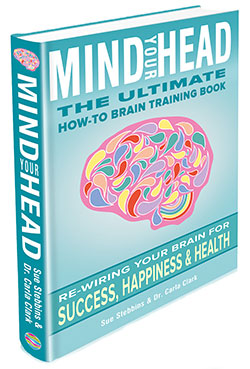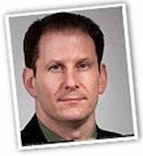Reid on Memory and Personal Identity
Rebecca Copenhaver
Page 4
Source: http://plato.stanford.edu/entries/reid-memory-identity/
The distinction also allows Reid to satisfy a constraint on any adequate theory of memory; namely, that it explain why memory represents events as having the special quality of being in the past. If belief were not an ingredient in episodic memory, then though we might believe that the events we remember are in the past,memory could not represent events as past. If belief were not an ingredient in memory, then memory alone would relate us to an event previously apprehended. But the apprehension preserved is an apprehension of an event that was, at that time, represented in that apprehension as present. The pastness of the event apprehended is not part of the content of the past apprehension. But because a belief that the event happened to me is embedded in the memory itself, memory represents not merely past events, but past events as having occurred. In other words, the belief that is partly constitutive of episodic memory is tensed.
One might wonder whether Reid's account of memory is subject to the same criticisms he levels against Locke and Hume. Does Reid appeal to the storehouse metaphor when he claims that memory is preserved past apprehension? Reid criticizes Locke and Hume for begging the question. Yet by holding that memory is in part constituted by a belief, does Reid not also assume the very phenomenon to be explained? Reid can avoid the criticisms to which the theory of ideas is vulnerable by insisting that memory is not a current apprehension, but rather a preserved past apprehension. His theory of memory is a direct realist theory because, according to Reid, memory is not directed towards any present perceptions, ideas, or impressions—stored or otherwise. Neither is memory directed towards any past perceptions, ideas, or impressions—stored or otherwise. Memory is directed towards the events presented in past apprehensions. Because apprehensions, perceptions, ideas, and impressions are never the objects of memory, they do not need to be stored for use by memory. Likewise, the belief that is an ingredient in memory is not about any present or past apprehensions. If it were, Reid's theory would be subject to the same circularity objection he presses against Locke and Hume.
On Reid's theory of memory, an apprehension establishes a direct relation to an event, which relation is preserved in memory by the acts of conceiving the event and believing of the event conceived that it happened to the person who remembers. It is a direct realist theory of memory because it departs from the model on which memory is a current apprehension of a past event or a current apprehension of a past apprehension. On the direct realist view, memory preserves past apprehension of an event through conception and belief. Reid's theory captures how memory, like perception, represents the world, rather than our experiences of the world.
3. Objecting to Locke on Personal Identity
Reid, Locke and others are interested in the notion of episodic memory not only for its own sake, but also because of its conceptual connection to the notion of personal identity. If Joe remembers, episodically, winning the World Series, then Joe must have existed at the time of his winning the World Series. This is why the Previous Awareness Condition characterizes episodic but not semantic memory. Unlike Joe's memory that Napoleon was defeated at Waterloo, his memory of winning the World Series logically entails Joe's existence at the time of the event remembered. In other words, episodic memory is logically sufficient for personal identity: if S remembers at time tn (episodically) an event at time t1, then S existed at time t1. In addition, memory reports are often taken to be prima facieevidence for statements about the past history of the person reporting.
Reid's main criticism of Locke's theory of personal identity is that Locke moves from these truisms concerning the conceptual and evidential relations among the notions of memory and personal identity to a hypothesis concerning the metaphysical relations among them (Essays, 277). In particular, Reid interprets Locke as holding what is now called the Memory Theory of personal identity (Essays, 277). On this theory, personal identity consists in memory; sameness of episodic memory is metaphysically necessary and sufficient for sameness of persons. In other words, on the Memory Theory, what makes a person identical with herself over time is her remembering or being able to remember the events to which she was witness or agent. If she cannot episodically remember an event, then she is not identical with any of the persons who was witness or agent to the event. In such a case, she would bear the same relation to that event as any other person for whom a memory of the event could rise at best to the level of a semantic memory. If she can episodically remember an event, then her recollection or ability to recall that event makes her identical with the person represented in that memory as agent or witness to the event.
But there is a secondary, more subtle line of disagreement between Reid and Locke. Much of Locke's chapter Identity and Diversity is dedicated to establishing that the self is not a substance, material or immaterial. By contrast, Reid holds that the self is a simple, unanalyzable immaterial substance with active powers. Reid argues that Locke cannot sustain both the thesis that the self is not a substance and the thesis that self remains identical over time. While Reid's criticisms of the Memory Theory are more well known, his criticism of Locke's insistence that the self is not a substance reveals two very different accounts of the metaphysics of identity. While Locke argues that the identity conditions for different kinds of things differ, so that the conditions under which a mass of matter, and an animal, and a person are not the same, Reid holds that identity is confined solely to substances that have a continued, uninterrupted existence and which do not have parts. In other words, according to Reid, strictly speaking the only real identity is personal identity (Essays, 266–267). “The identity…we ascribe to bodies, whether natural or artificial, is not perfect identity; it is rather something which, for the conveniency of speech, we call identity” (Essays, 266).
Reid begins his interpretation and criticism of Locke's theory by noting that Locke defines the term ‘person’ as meaning “a thinking intelligent Being, that has reason and reflection…” (Locke Essay, Book II.xxvii.9). Reid is friendly to this characterization of the self. But, Reid notes, Locke appears to equivocate between the notion of a person as a ‘thinking Being,’ and the notion of a person as that which is preserved through consciousness and memory. Reid paraphrases a passage from Locke's Essay Concerning Human Understanding:
Mr LOCKE tells us however, “that personal identity, that is, the sameness of a rational being, consists in consciousness alone, as, as far as this consciousness can be extended backwards to any past action or thought, so far reaches the identity of that person. So that whatever hath the consciousness of present and past actions, is the same person to whom they belong” (Essays 275–276).
The passage in Locke differs from Reid's paraphrase:
…personal Identity, i.e. the sameness of a rational Being: And as far as this consciousness can be extended backwards to any past Action or Thought, so far reaches the Identity of that Person; it is the same self now it was then; and ‘tis by the same self with this present one that now reflects on it, that that Action was done (Locke, Essay, Book II.xxvii.9).
Reid's first criticism rests on his interpreting Locke's definition as committing him to the position that a person is a subject of thought, which Reid regards as implying that a person is a thinking substance. At the same time, Locke appears to be committed to an analysis of personal identity in terms of memory, or, as Locke would put it, consciousness of the past. Reid notes that Locke is aware of some of the consequences of the Memory Theory: if sameness of consciousness or memory is necessary and sufficient for sameness of person, then it is possible for there to be sameness of person without sameness of thinking Being. In other words, it is logically and metaphysically possible for a person to be “transferred from one intelligent being to another,” or for “two or twenty intelligent beings to be the same person” (Essays, 276). Locke's response to these worries, as well as worries about periods of interrupted consciousness, as in sleep, highlights Reid's criticism: “…[I]n all these cases…doubts are raised whether we are the same thinking thing; i.e. the same substance or no. Which however reasonable, or unreasonable, concerns not personal Identity at all. The Question being what makes the same Person, and not whether it be the same Identical Substance…” (Locke, Essay, Book II.xxvii.10). Reid's criticism is not that cases of transfer or fission are incoherent, though he thinks they are. Rather, his criticism is that the possibility of sameness of person without sameness of thinking Being the Memory Theory raises is inconsistent with Locke's characterization of a person as a ‘thinking Being’. Given that Reid thinks that this initial characterization is correct, he regards this to be a reductio of the Memory Theory.
We Make it Easy to Succeed
Successwaves, Intl.
Brain Based Accelerated Success Audios
 |






